A second lecture under “Topics in China Studies Lecture Series” for the 2020–21 academic year was held online on 10 December 2020. Professor Daniel A. Bell, Dean of the School of Political Science and Public Administration at Shandong University, Professor Bai Tongdong at the School of Philosophy, Fudan University, and Professor Zhu Suli from Peking University Law School, talked on “Confucianism vs Legalism: Historical Perspective and Contemporary Implication”. Associate Dean Brent Hass and Director of Graduate Studies Professor Lu Yang attended the lecture.
Haas heralded the talk and extended gratitude, on behalf of the Yenching Academy, to the three lecturers and Princeton University Press. He explained that the lecture was a dialogue between law and philosophy across the past, present and future.
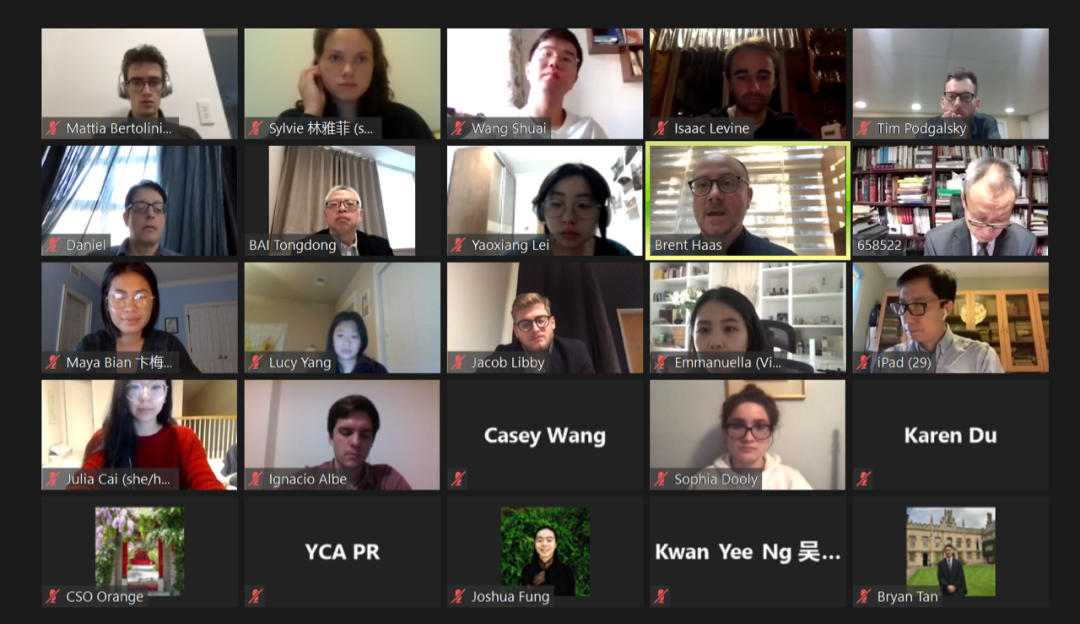
Prof. Bell gave the first lecture titled “Confucian Legalism”. According to him, Confucianism and Legalism were not necessarily opposite. On the contrary, Confucian Legalism adapted itself to times and played a role throughout history. He talked about the dead and “living” thoughts of Confucian Legalism from historical perspectives and maintained that those still alive would inspire the future.
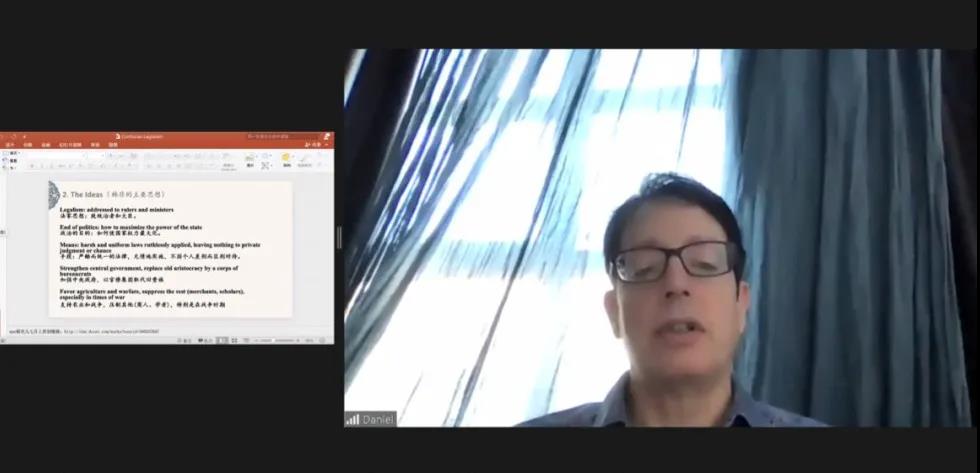
Prof. Bai’s lecture focused on his work Against Political Equality published by Princeton University Press. According to the professor, Chinese philosophers in the pre-Qin period endeavoured to solve roughly the same problems. They tried to legitimise the regimes they served, forge strong social ties and deal with relations with other states. Likewise, he saw Legalized Confucianism as inspiring and held that a new or updated Confucian Tianxia model could apply to the dire international political scene.
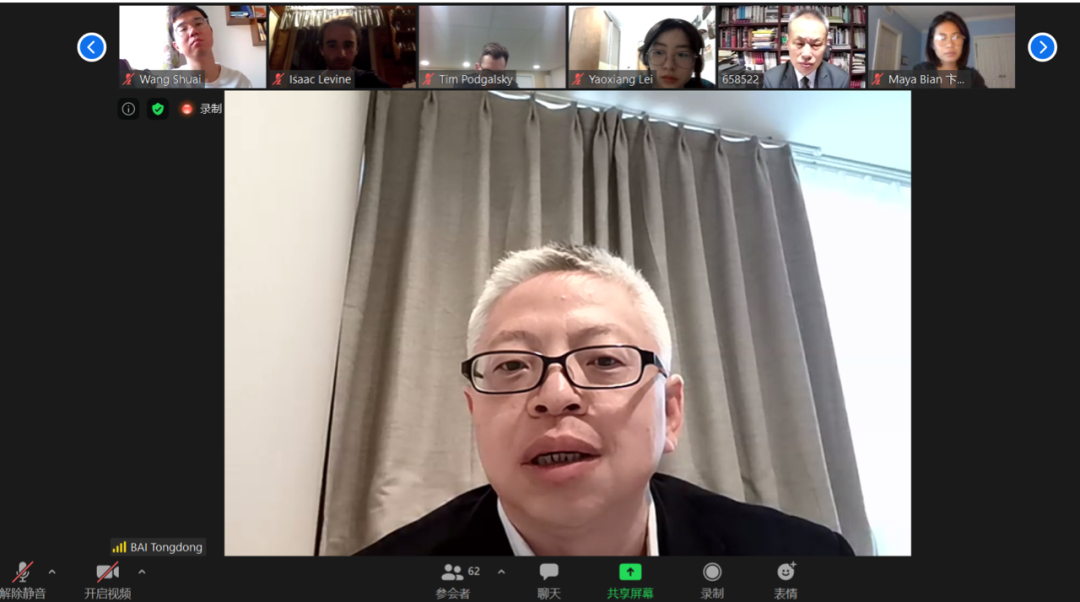
Prof. Zhu looked at Chinese political philosophies and institutions from a historical perspective. He discussed that every dynastic regime in ancient China had to deal with three issues: the need to domestically exert efficient governance on the village-level and state-level and externally deal with nomadic people from the north. He noted that Confucian thoughts permeated the village-level administration in ancient China in a family-dominating model of governance based upon Confucian ethics. However, Legalism played a role more in the state-level control and in dealing with nomadic peoples. In addition, Prof. Zhu introduced the role of centralism in the unification of characters and Mandarin use and the imperial examination system in dynastic China.
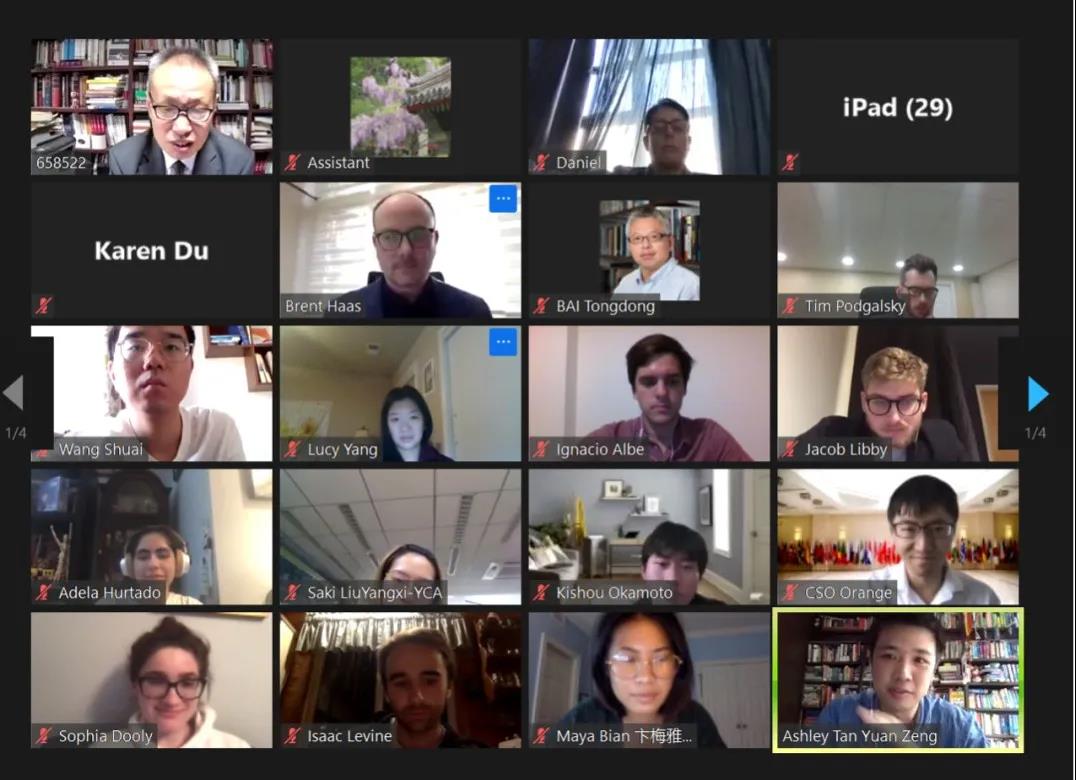
The three professors had an insightful talk. First, Prof. Bell challenged Prof. Zhu regarding how political philosophies engendered in ancient China could be referred to by modern society. To this question, Prof. Zhu affirmed that Confucian philosophies like meritocracy and emphasis on education have implications in modern societies, even though industrialised Chinese society relations-based Confucianism is declining.
A student raised the question of whether Confucian Legalism would possibly enter the legal system and apply to other countries. Prof. Bell found that Confucian Legalism was a political philosophy indigenous to China, thus, hardly applicable to others. For example, in the COVID-19 pandemic, many Western countries have failed to adopt personal freedom-and-privacy-for-life measures.
Responding to whether “benevolent world politics” is an alternative to world politics in globalisation, Prof. Bai drew on the normative theory arguing that big countries like China and the US could enter practical collaboration on climate change, refugee crisis and vaccine distribution. But as a matter of fact, international relations are entangled with frictions, conflicts and cooperation.
After the lecture, the Yenching Academy Public Relations office interviewed the three professors. They shared their ideas of scholarship and what we should do with traditional Chinese philosophies in modern society.
According to Prof. Zhu, Confucianism and Legalism both responded to radical changes in their times. Confucianism dealt with threats faced by the newly-established Western Zhou regime, while Legalism emerged in the turbulence of the late Warring States Period. Both were adaptations to their social contexts. In ancient Chinese philosophies, we must see their agility and flexibility to changes, and “all philosophies must deal with issues in real life.” He held that our life sets in globalisation and modernisation; therefore, foreign cultures, like ancient Chinese culture, are the sources for Chinese scholars and China today. We need to draw inspirations from them, but not to be bound hand and foot by them.
Meanwhile, Prof. Zhu emphasised issues in the Chinese context because no philosophies, institutions or topics could stand alone from their specific context. He cherished “local resources” for research and encouraged students to look at what’s happening in everyday life.
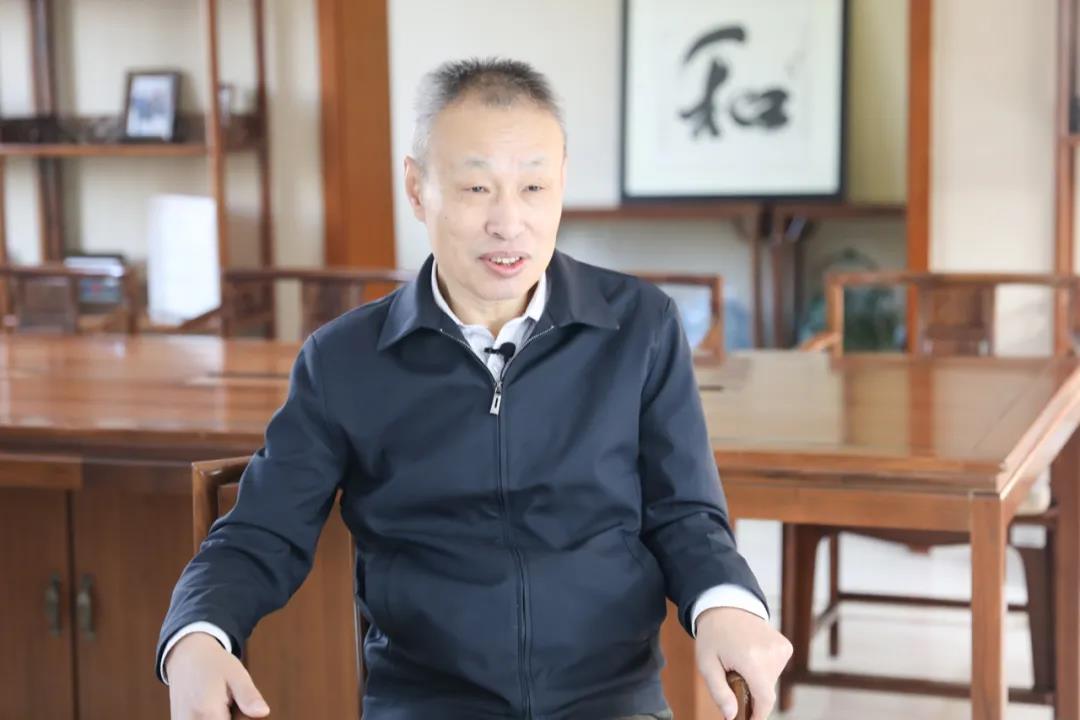
Prof. Bai talked about how he shifted from nuclear physics to political philosophy. His passion for the sciences and dialectics of nature in high school led to his enrolment in the nuclear physics track in the Department of Technical Physics, which is now part of the School of Physics, Peking University. Prof. Bai has cherished the years of studying physics, “When we talk about modern sciences, we refer to modern physics on the whole. Physics may be the greatest thing achieved by man in the past four or five centuries. Thanks to my experience as a physics major, I understood the discipline in details and methodologically. I feel sure about myself in discussions because I know what true scientific research looks like.”
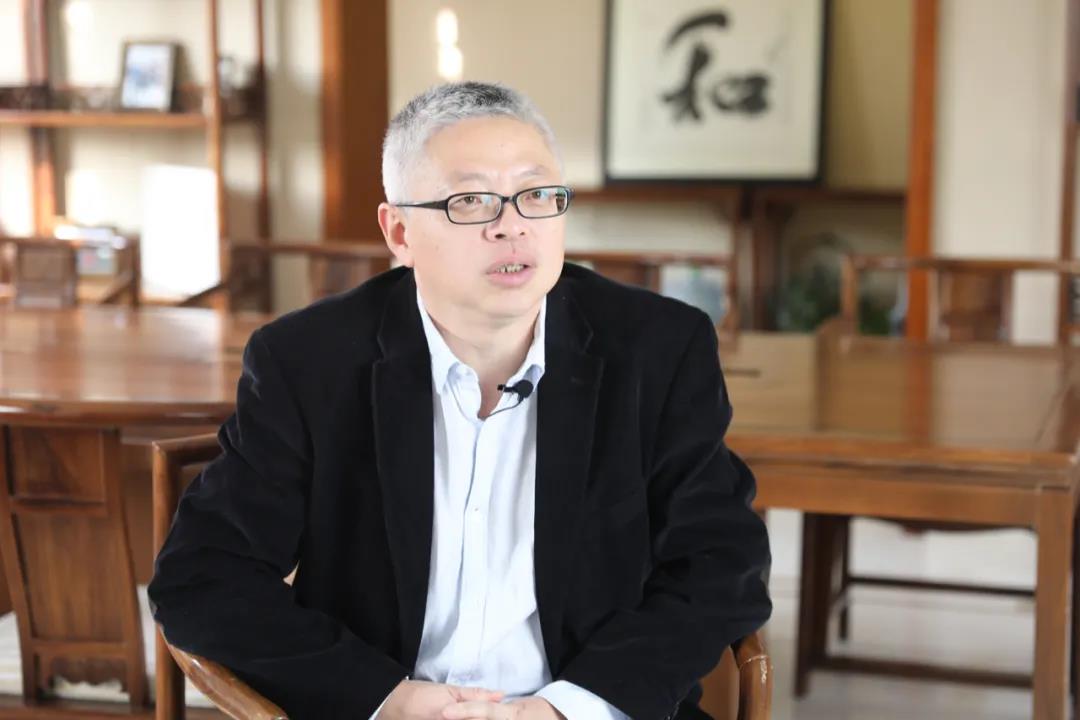
Prof. Bai focused on the legacy of traditional Chinese political philosophy in modern societies. For instance, wearing a mask as a countermeasure against the COVID-19 pandemic is no longer a private issue but a public health matter. Confucianism calls people to treat with reverence the elderly in the world the same way one treats the elderly in one’s own family. That tells about the continuity of the public and the private, to some extent. The norms for the private could apply to the public. In a broad sense, that’s the legacy of Confucianism that helps us today.
For Prof. Daniel Bell, he saw a sort of extension of traditional Chinese philosophies in China’s efforts to combat the COVID-19 epidemic. For instance, measures of control in the early days of the pandemic were stringent and drew more on Legalism. With Prof. Zhong Nanshan as their representative, medical staff and scientists deserve the title “Junzi”. Wise and able as they are, these Junzi of the modern-day are willing to take risks and do what they can for the ordinary people. And it is agreed by scholars on Confucianism that it’s the most important thing to see the people have faith in experts and the ruler.

At the end of the interview, the three professors gave their advice to YCA students in the China Studies program. Prof. Bell shared his teaching experience, encouraged students to learn diverse methodologies and recommended discussions with teachers. Prof. Zhu emphasised studying with interest, as interest is the best guide in the academic journey. He called students to employ what they have learned in analysing new issues. Finally, Prof. Bai suggested that students learn more about natural sciences and take objective and dialectical viewpoints. He stressed the importance of being open-minded to different cultures and thoughts and asked students to dive deep into what they see.